Eco camping: how you can make your trips as environmentally friendly as possible
This guide to eco camping explains the steps you can take to ensure your trips are good for the planet and as sustainable as possible
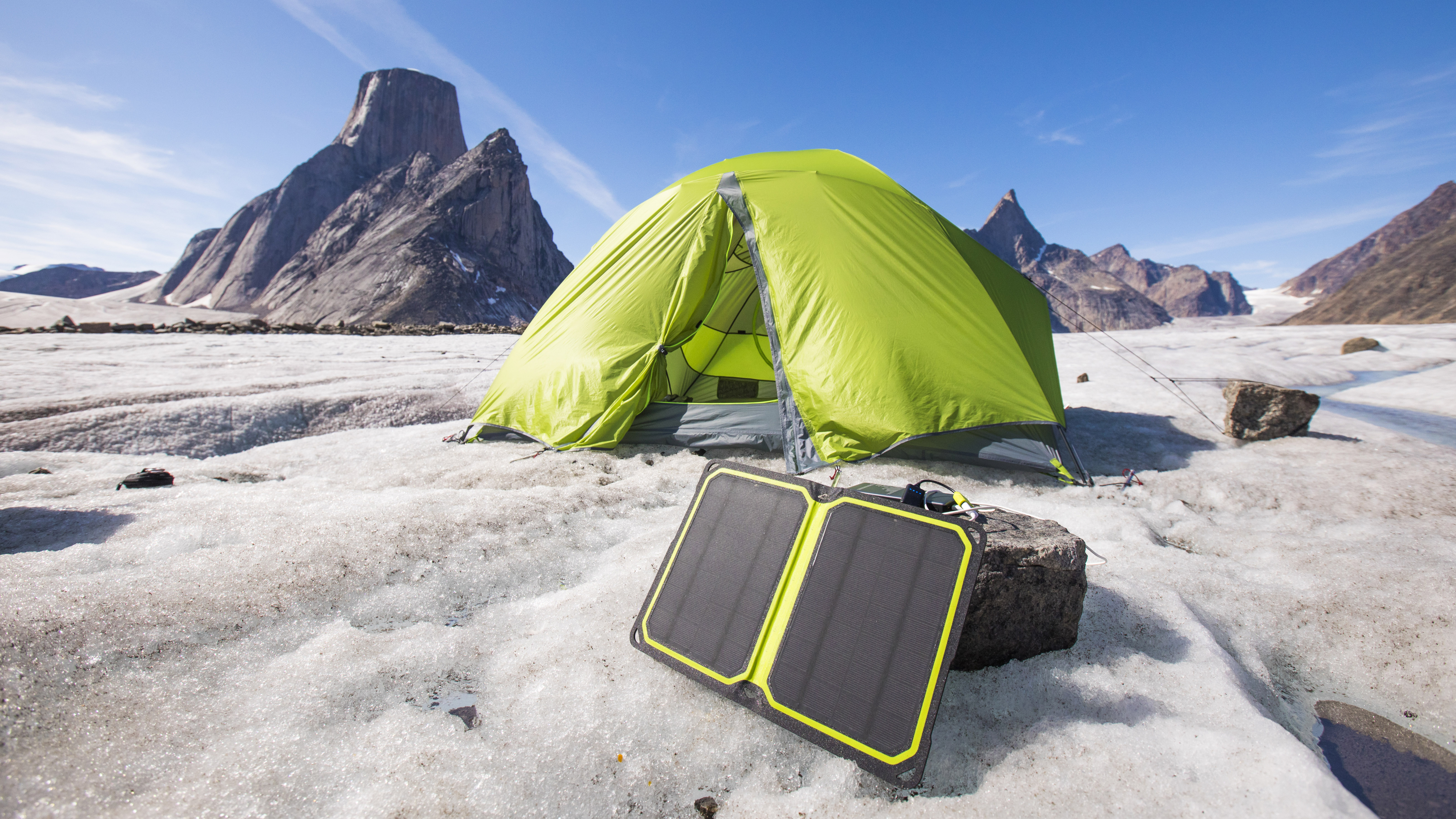
All the latest inspiration, tips and guides to help you plan your next Advnture!
You are now subscribed
Your newsletter sign-up was successful
Learn and share the principles of eco camping this season, because the backcountry needs them now more than ever. One of the positives to come out of the pandemic was the connection many people forged with the outdoors around their home. Local lockdown walks were a salvation for many and, with overseas travel off the cards, many embarked on a camping trip and spent their vacation uncovering gems closer to home.
Some US camping and glamping booking services reported spikes of 400% compared with pre pandemic numbers. Even though vacations further afield are now more accessible again, it’s likely the camping bug has taken hold. Newly equipped with all the prerequisite gear, many will be planning further trips to the campsite this summer.
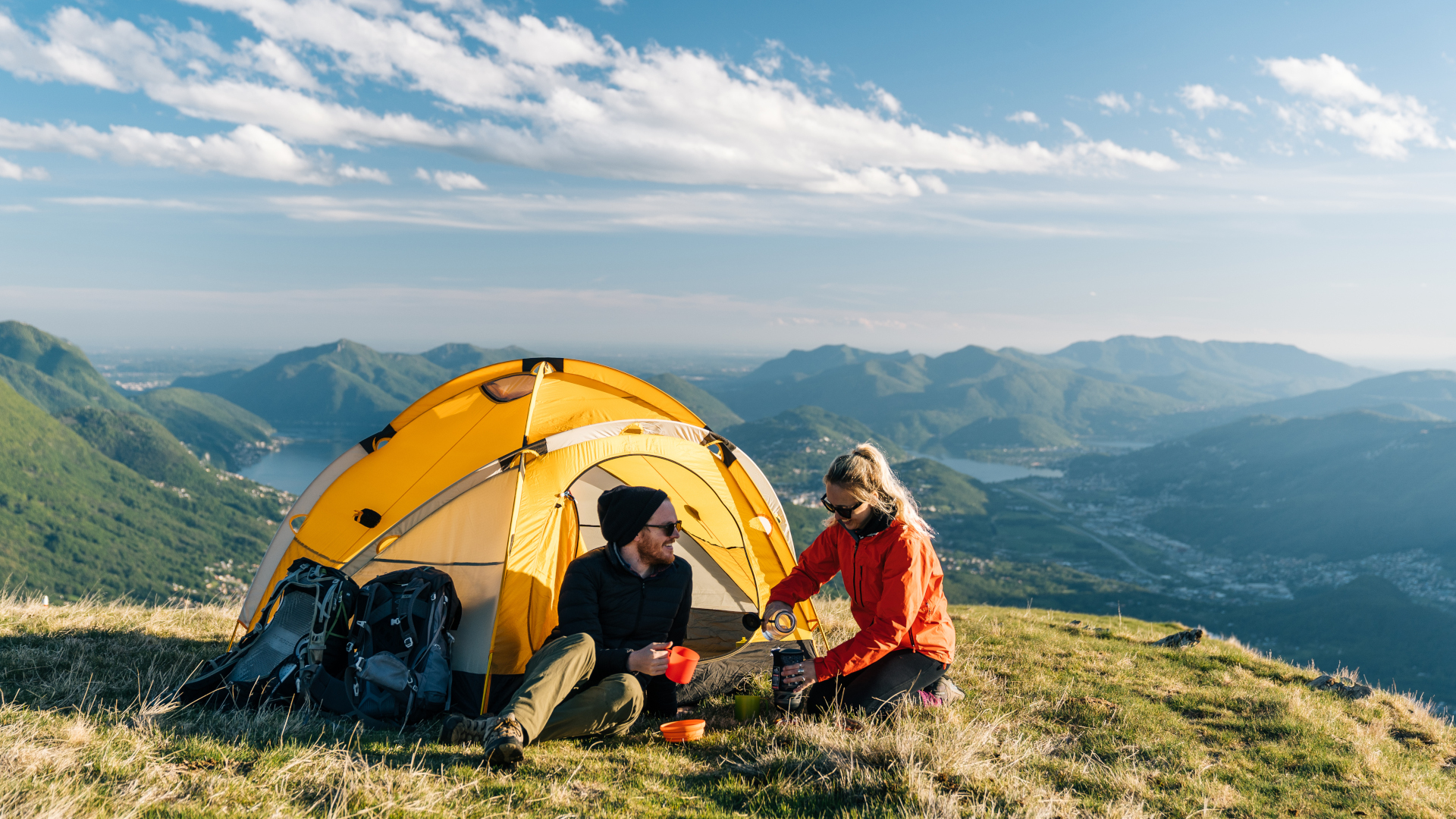
However, this surge in numbers puts environmental pressure on our wild places, particularly if people are not familiar with the principles of eco camping. The last thing you want when you’re pitching your best camping tent is to have to clean up someone else’s trash from the previous night or be greeted by the charred remains of a badly managed campfire.
If you’re choosing to spend your vacation camping, good for you! A camping trip to a relatively local beauty spot is already a much greener option than taking a flight and staying in a hotel. As you’ve made this choice – and as it’s likely that you are already a lover of the outdoors – you are the perfect person to practise and share the principles of eco camping.
How to enjoy a sustainable eco camping trip
Most forms of camping can be thought of as "eco camping" if done sustainably. The back to basics approach of a trip into the countryside with a shelter hewn of fabric and only the bare essentials along for the ride is the very essence of an environmentally friendly vacation. These days, you can even employ a solar charger to juice up your gadgets, making off-grid adventures even easier to achieve.
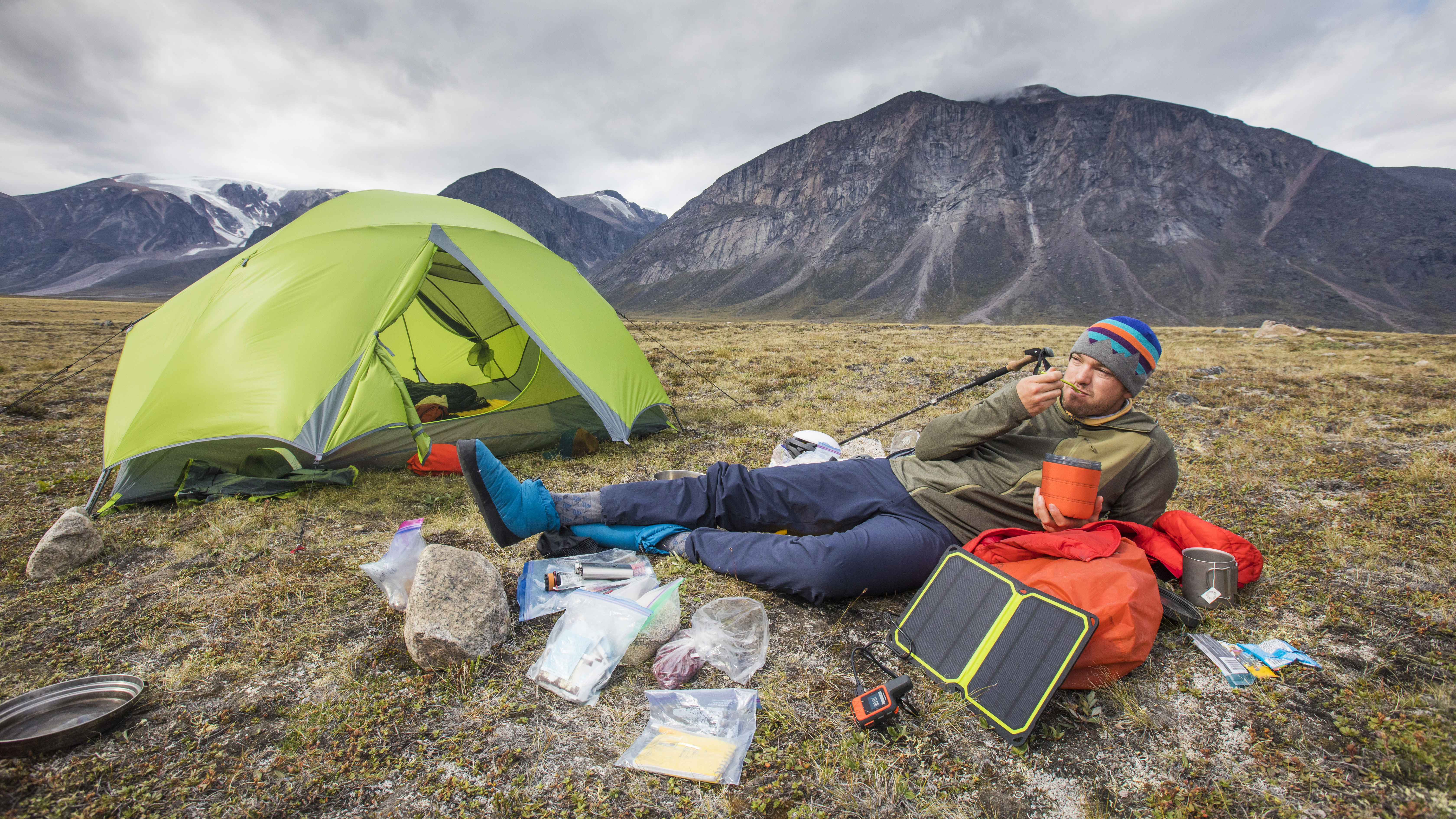
When it comes to eco camping, there are loads of “codes” out there to choose from, with various guidelines designed to make a trip as sustainable and enjoyable as possible. Generally speaking, they boil down to one abiding principle: leave no trace. If, when you depart from your adventure, the environment is the same as when you arrived, you’ve had a sustainable trip. Even better is if you can leave the environment in a better state than what you found it in by doing things like picking up trash if you see any or giving friendly advice to other campsite or trail users.
Here are some tips to abide by that will lead to a sustainable, eco camping experience:
All the latest inspiration, tips and guides to help you plan your next Advnture!
- Plan ahead. If you prepare properly, you’ll be able to keep a tidy, ordered camp and won’t need to do any long drives away from the campsite for supplies. A camping checklist can be useful to ensure you don’t forget any essentials. If you plan to wild camp, check what the situation is in the region you plan to pitch. Bringing your dog? Check your campsite is dog friendly and what facilities they have.
- Don’t litter. This should be pretty obvious. All trash should be either disposed of in marked garbage bins or carried out with you. This includes items like apple cores, banana skins and orange peels, some of which take many months to biodegrade.
- Store food securely. Open food can attract unwanted wildlife, such as bears. Store all food in secure containers, like quality camping coolers, bear canisters, or in your vehicle if possible.
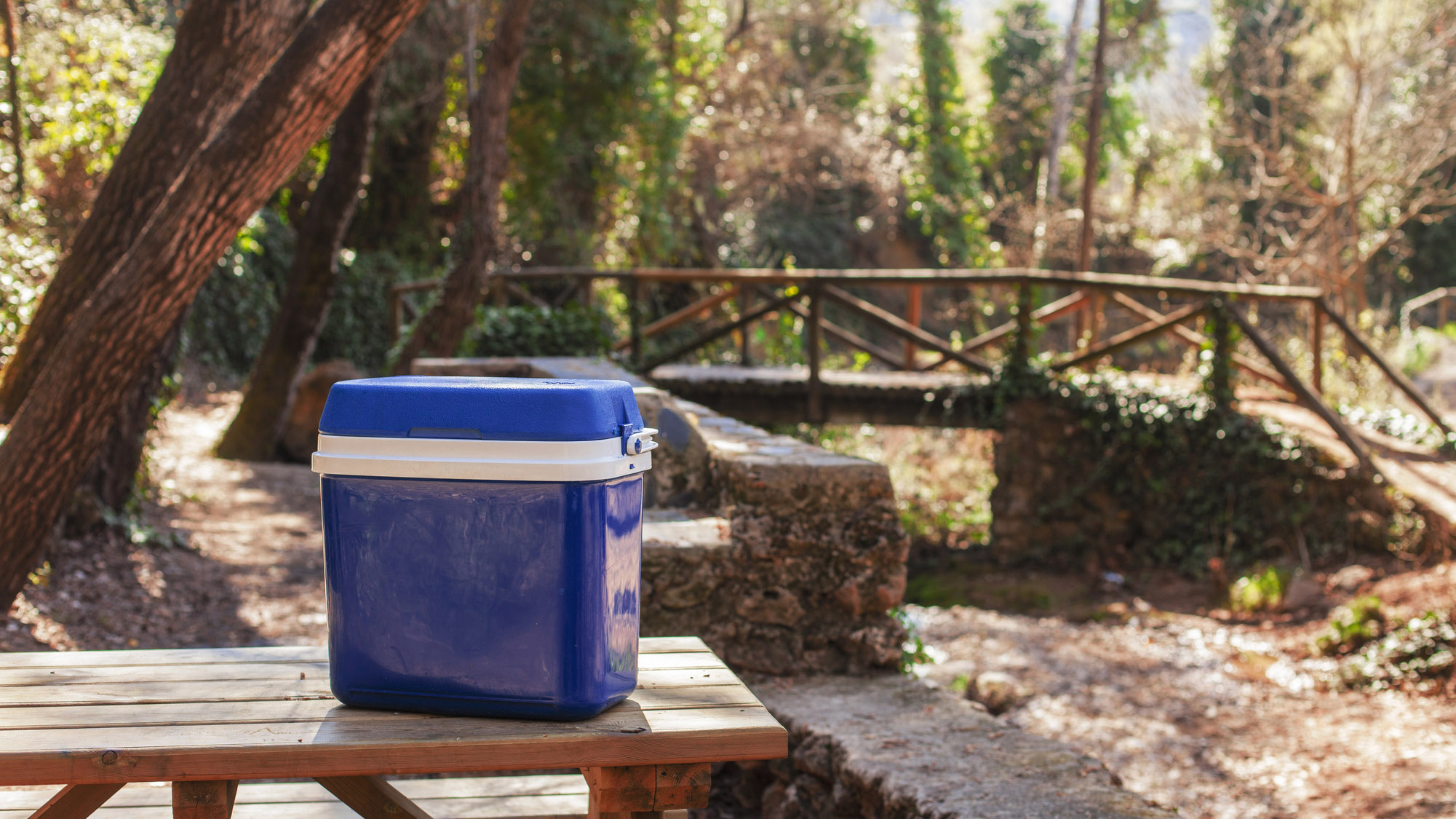
- Take nothing but photos. This is a phrase that is easily remembered alongside “leave no trace” and alludes to the fact that you should leave the natural world as you found it. However, as mentioned, taking unwanted items like other people’s trash away with you is a good thing, so perhaps we can adapt this: take nothing but photos and trash.
- Practise proper campfire safety. Many campsites have designated fire pits and have locally sourced firewood that you can buy. Don’t go around chopping branches off living trees or starting a fire without permission. Vitally important is that you check your fire is fully extinguished before vacating.
- Manage your pets. Having checked that your campsite is pet friendly, once on site you need to ensure your pet is under control and that you dispose of its waste by either disposing in an animal waste bin or by packing it out.
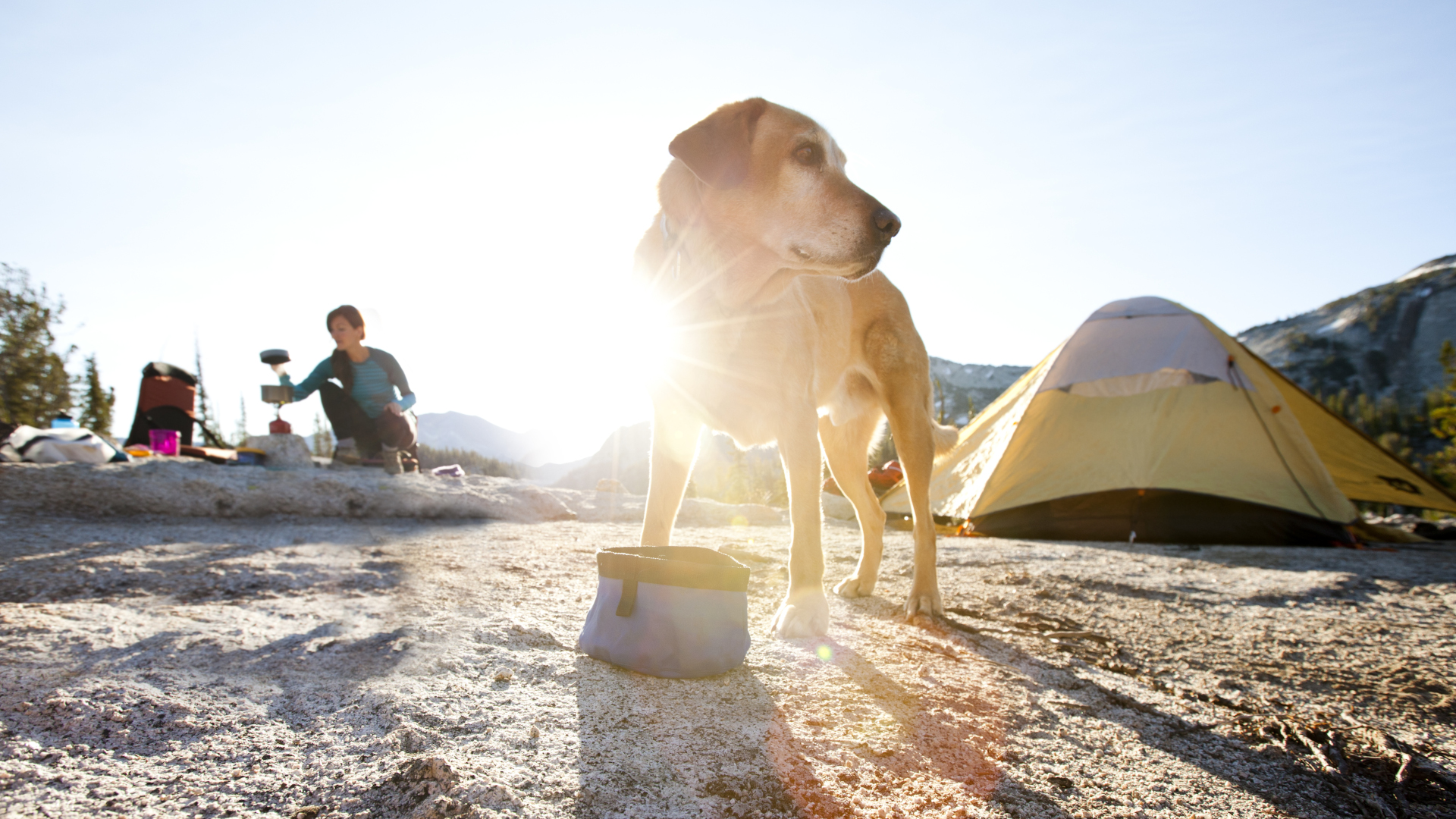
- Respect the local wildlife. Wildlife should be observed but not interfered with, as this can lead to habitat damage or harm to both the animals and humans. Do not feed or approach wild animals – a pair of binoculars is the ideal way to observe from afar.
- Respect the local people. The people who live in or own the land you plan to enjoy may not always be so welcoming if visitors do not show respect. Keep your noise levels to a minimum and follow the principles outlined here.
Getting to and from your eco camping trip
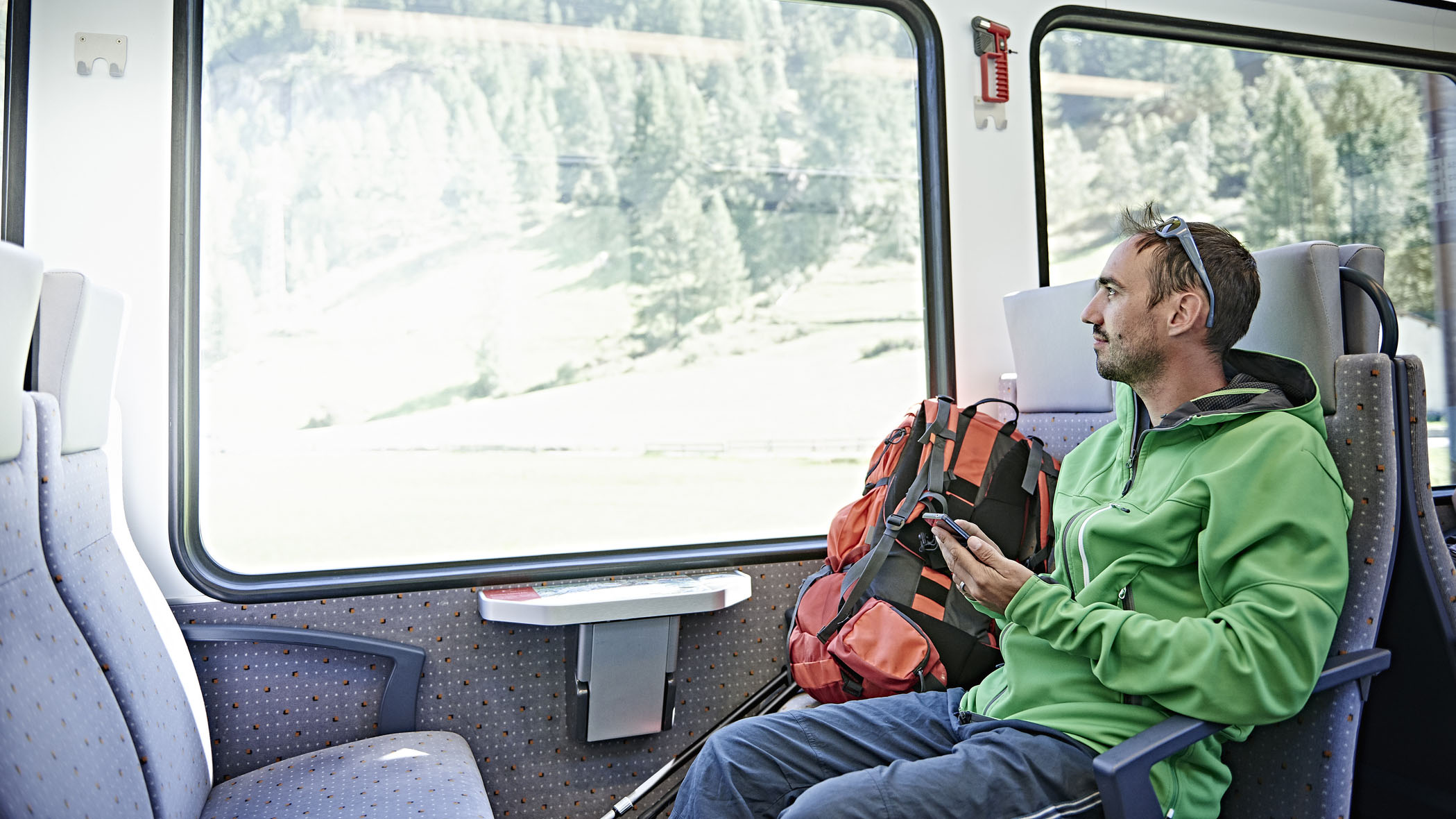
The mode of transport you choose to access your camping trip will make a huge difference in terms of its carbon footprint. Here are some key considerations:
- If possible, travel to a local beauty spot rather than further afield. The carbon footprint of your trip increases with every kilometer and the less time spent travelling, the more time you have to enjoy the experience. Flying is the least environmentally friendly way of traveling, so avoid if you can.
- Travel by public transport where possible. Taking the train or bus to your location is a much greener way to arrive than by car. Besides, this allows you to kick back and relax, enjoy the scenery and read about the adventures ahead.
- If you must drive and you are heading out as a group, car share and use as few vehicles as possible.
Tips for wild camping
If you’re leaving the beaten track behind and heading into the backcountry for a wild camp, there are several principles to abide by to make sure your adventure is a sustainable one. Upland environments are home to fragile ecosystems that are not adapted to cope with significant human intrusion. Of particular importance are their streams, rivers and pools, which can become contaminated by human waste and products, which is not only bad news for the flora and fauna that live there but also for future visitors.
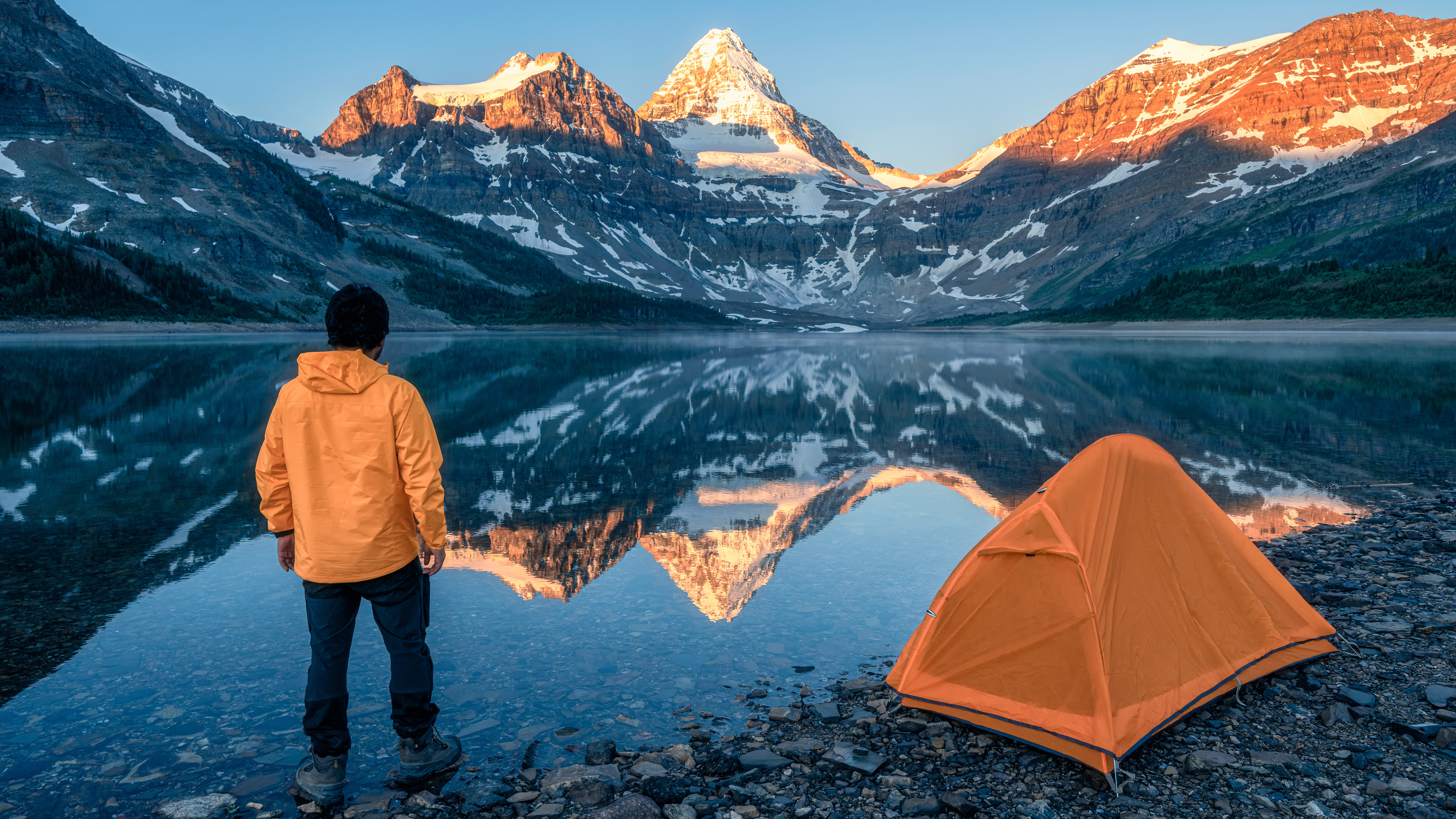
The following should be adhered to when wild camping:
- Use a camping stove to cook food; do not create an open fire unless in an emergency.
- Do not use soaps or detergents when washing in streams.
- Toileting should be done at least 30 meters away from streams, rivers and paths.
- Poop should either be buried or bagged up and taken out. If burying, use a trowel and dig a hole at least 15cm deep.
- All toilet paper and sanitary products should be bagged up and taken away with you. Old dry bags are a great option for this kind of thing, as they can be closed securely and are much less likely to tear than plastic bags. Use non-perfumed toilet paper to avoid contaminating water sources.
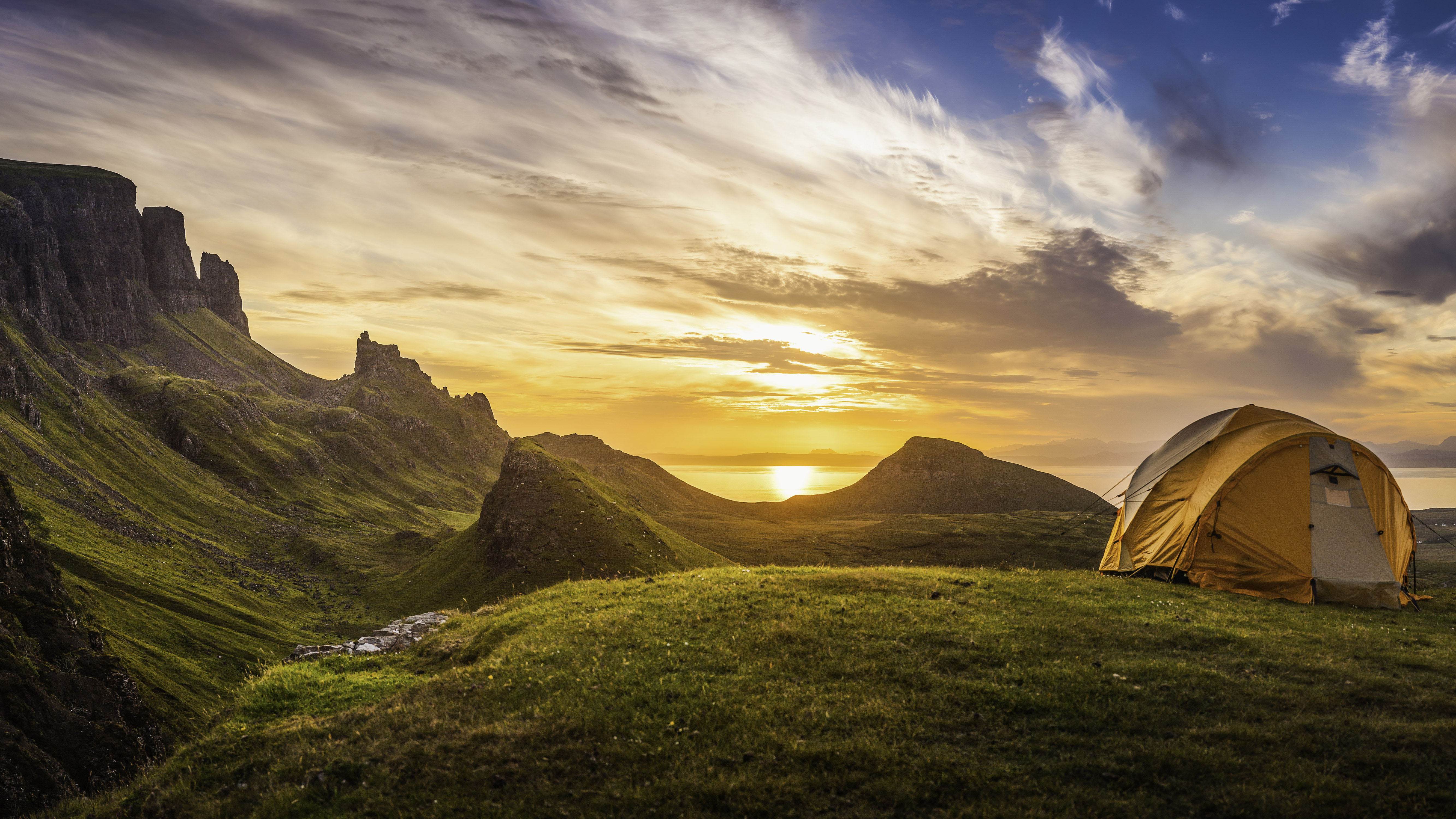
- To reduce the visual impact of your camp, pitch late in the evening and leave early in the morning. Try to choose a colour that blends into the surroundings when selecting your backpacking tent. Don’t camp in large groups.
- Do not alter the environment around you by digging ditches, moving rocks or trampling plant life.
- Again, leave no trace.
You should check what the situation is with regards to wild camping when planning your trip. In some areas it is totally legal, in some areas there are restrictions, in some areas it is illegal but generally tolerated if proper wild camping principles are applied and in some areas it’s a total no-go.
Eco camping activities
One of the most awesome things about the great outdoors is the freedom and the sheer number of human-powered activities you can enjoy, often for free! Hiking is a perennial favourite – just grab your best hiking shoes, map, compass and daypack and off you go. Entertain the kids with a nature hunt through the forest (ticking things off but not taking anything, of course), or head to a mountain stream for a scenic picnic. For the budding mountaineers, choose an appropriately sized summit to aim for and the sky really is the limit.
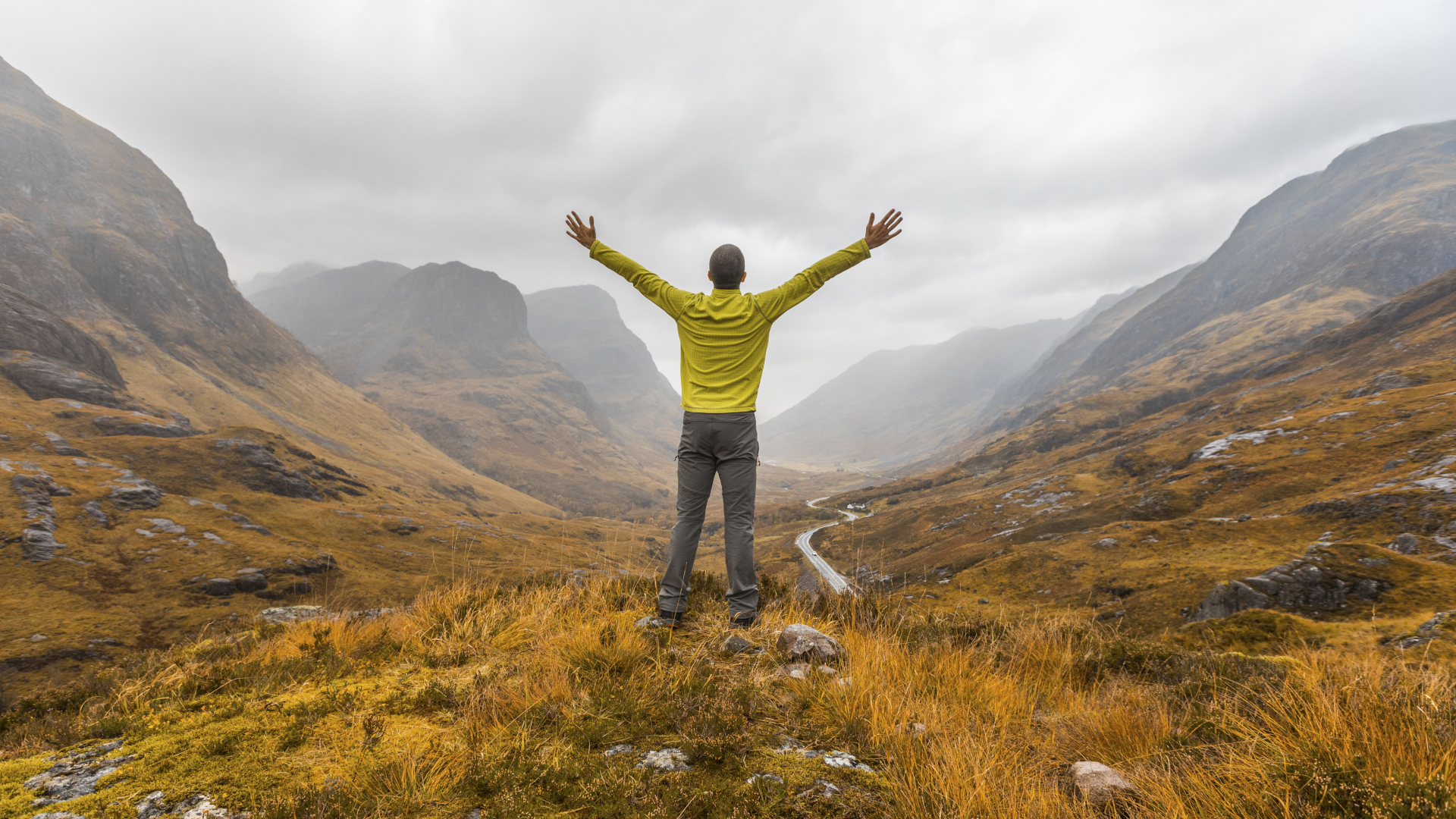
There are myriad other activities you can enjoy by renting equipment or hiring local guides or instructors. Channel your inner Alex Honnold with a spot of rock climbing, take to the lake on a paddleboard or kayak or hire mountain bikes and hit the single track.
One of the best things about all these activities are that they are human-powered and therefore don’t require fuel beyond the food your consume. Try to eat locally sourced nosh on your trip; after all, tasting regional produce is one of the great things about a vacation.
Alex is a freelance adventure writer and mountain leader with an insatiable passion for the mountains. A Cumbrian born and bred, his native English Lake District has a special place in his heart, though he is at least equally happy in North Wales, the Scottish Highlands or the European Alps. Through his hiking, mountaineering, climbing and trail running adventures, Alex aims to inspire others to get outdoors. He's the former President of the London Mountaineering Club, is training to become a winter mountain leader, looking to finally finish bagging all the Wainwright fells of the Lake District and is always keen to head to the 4,000-meter peaks of the Alps. www.alexfoxfield.com

